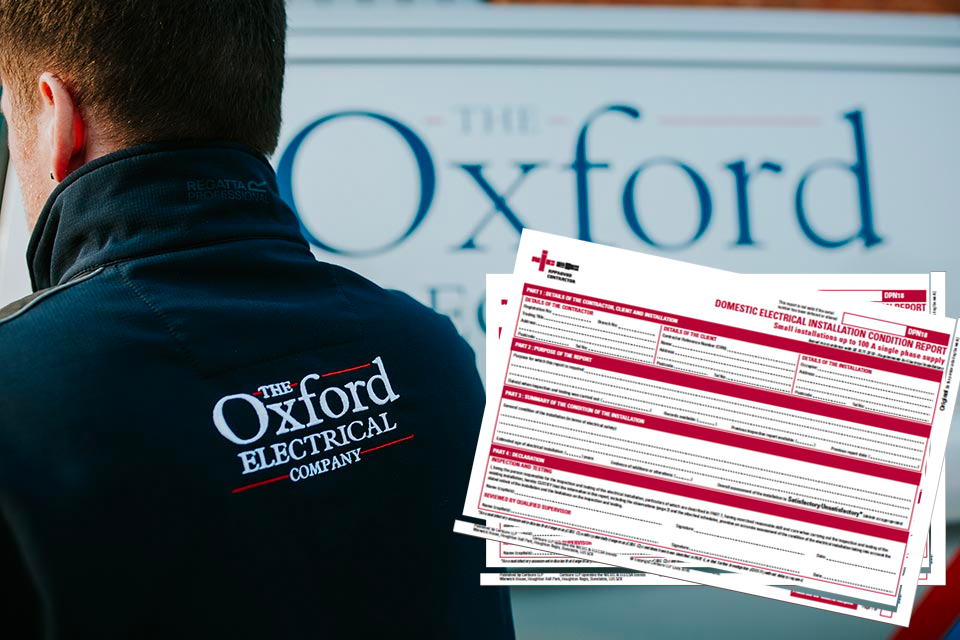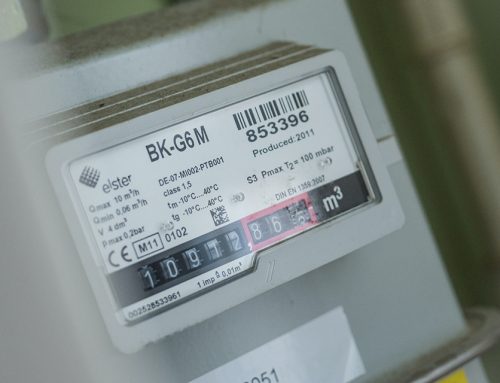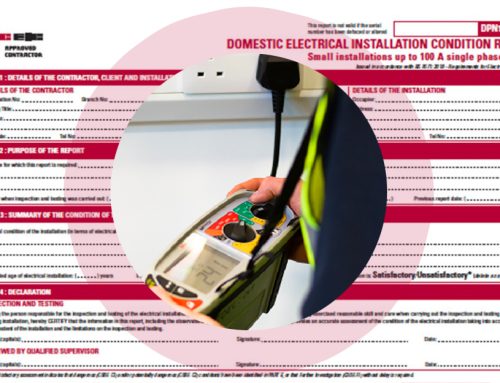EIC and EICR may sound similar, but they refer to two different types of report. An EIC (Electrical Installation Certificate) is for the new installation of electrical wiring for certain types of works and the other is a periodic test to ensure that an electrical system remains safe. Since April 2021 all landlords in the UK are required to have a EICR (Electrical Installation Condition Report) but they may not need a EIC if they have not made any changes or additions to the electrical systems.
What is an EIC?
An EIC, Electrical Installation Certificate, is issued by a qualified electrician to confirm that any new notifiable electric work complies with the BS 7671 (IEE Wiring Regulations). Examples of notifiable work include the installation of a new circuit, the replacement of a consumer unit, and any addition or alteration to an existing circuit in a special location, or any electrical work in a kitchen, shower room or bathroom. (Find out more)
An EIC is sometimes called a DEIC (Domestic Electrical Installation Certificate) or a BS 7671 electrical safety certificate – but they are all the same thing.
What is an EICR?
An Electrical Installation Condition Report is also completed by a qualified and registered electrical engineer to ensure that the building’s electrical system is safe and identify any potential issues that need addressing. It also includes Fixed Wire Testing and is sometimes referred to as such. An EICR tests the whole electrical system including the wiring, fuse boards, plug sockets and light switches looking for any issues with overloading, damage, or deterioration.
It does not include appliances or equipment – this is PAT (Portable Appliance Testing) which is not legally required but it is best practice for landlords to be able to evidence the electric appliances in a property are safe.
An EICR became a legal requirement for rental properties in England from 1 April 2021. However, if the property is a new build or has been rewired, you will not need an EICR until five years has lapsed from when the current Electrical Installation Certificate (EIC) was issued.
Who needs an EICR?
If you are a residential landlord, you need a EICR every five years, or when there is a change of tenant, which ever is sooner.
Commercial landlords are also recommended to have EICRs every 5 years, as they fall under the ‘all landlords’ bracket of the April 2012 legislation but are not specifically mentioned. Read our blog about Why Businesses Need EICRs.
If you own your house and are selling it, you do not need an EICR but you will need to evidence that the property is compliant with BS7671 if you have had electrical work completed since 2005. Having an EICR completed is a good way for sellers to prove the safety of their electrics when they are selling, even though they are not required by law.
Why contact The Oxford Electrical Company about your EIC or EICR?
- We are happy to talk you through the electrical checks you might need such as a EIC, EICR, PAT testing etc.. so, you understand your obligations
- We will complete the NICEIC Approved Fixed Wire Testing in accordance with British Standards and all relevant electrical regulations while we are completing your EICR
- We can be flexible as to when we complete these tests to minimise disruption to your family, tenants, or business
- We will provide you with a detailed Electrical Installation Condition Report (EICR), with recommendations on where the system can be improved, and how you might save money and reduce your carbon footprint in the future
- We can give you a quote and dates to complete any urgent or immediate remedial works identified in the EICR
For a no-obligation quote and to talk about your requirements call 01865 803017 or email info@theoxfordelectricalcompany.co.uk.




